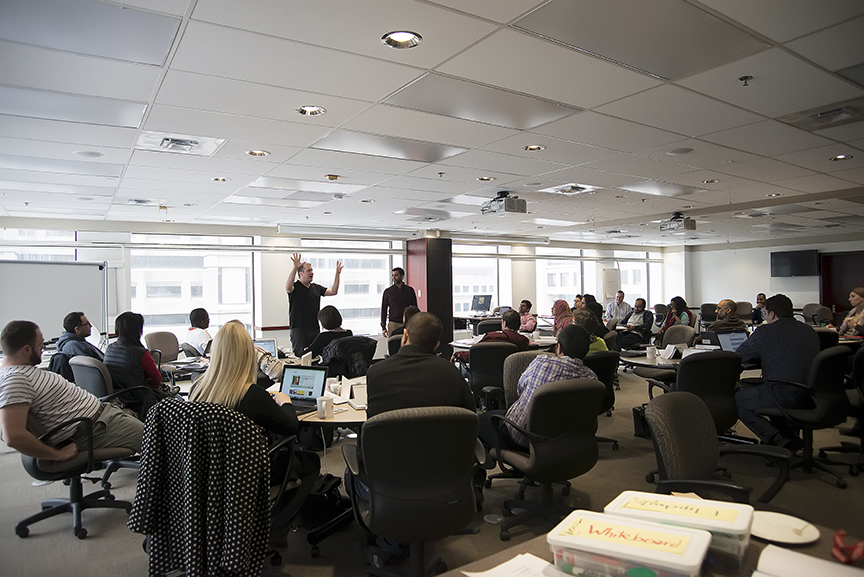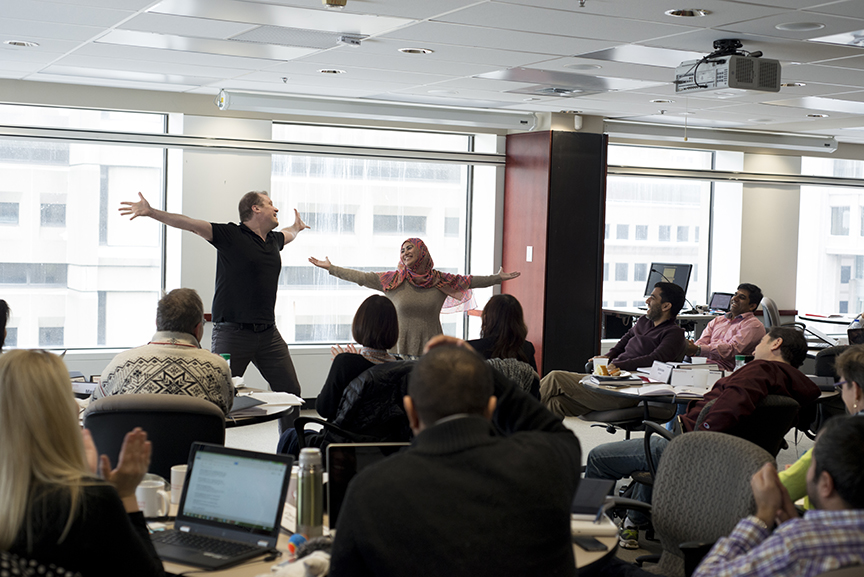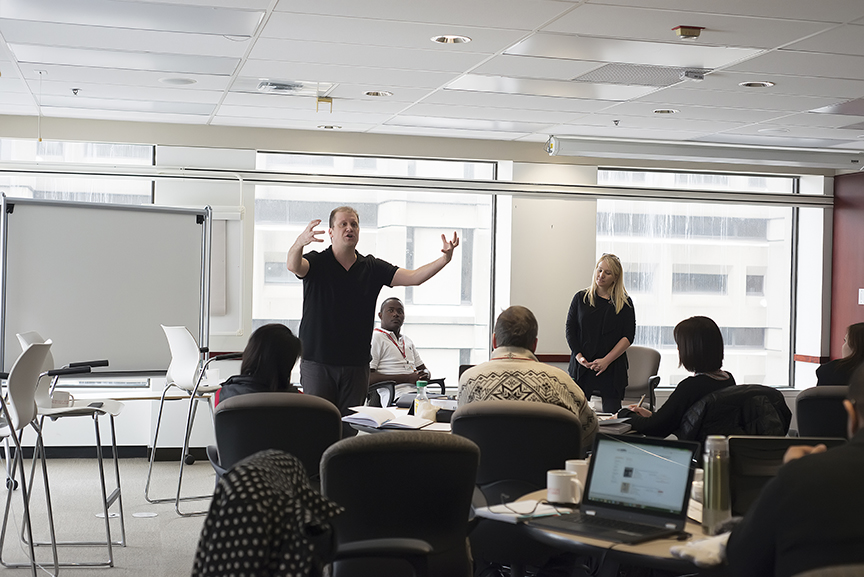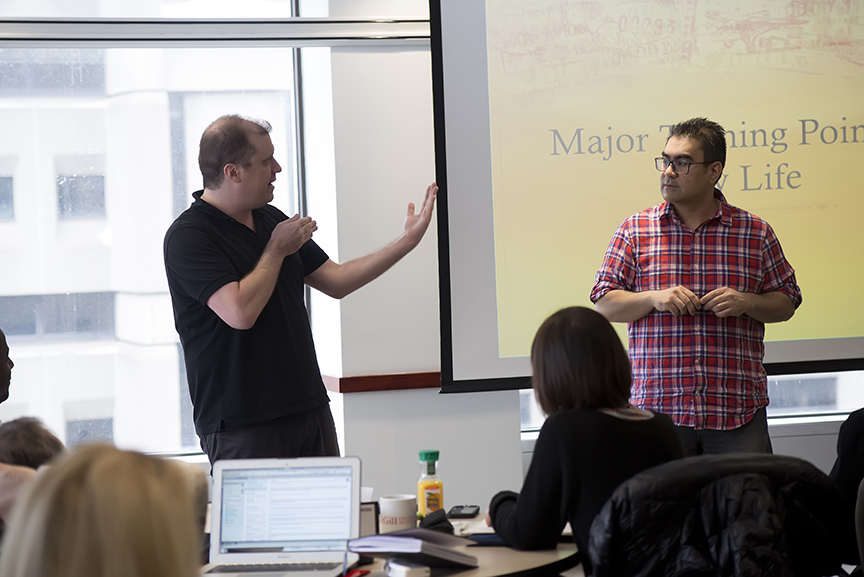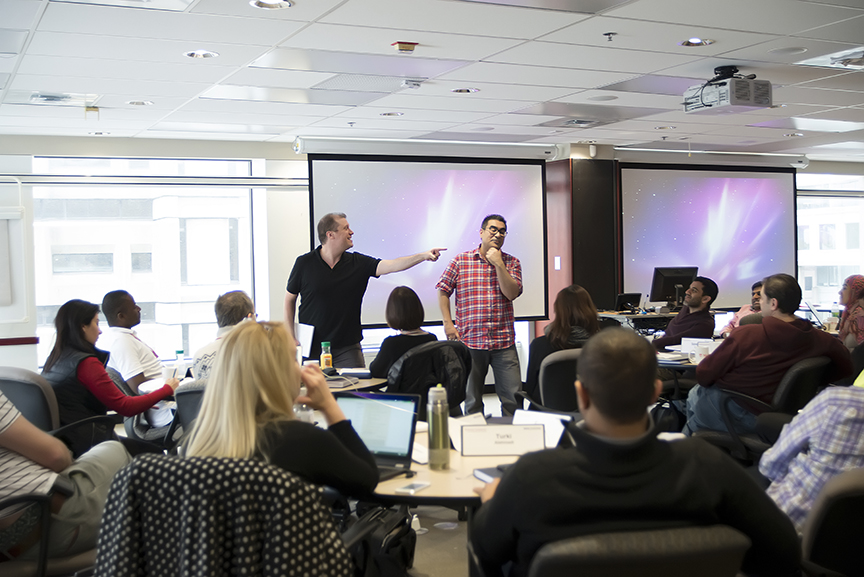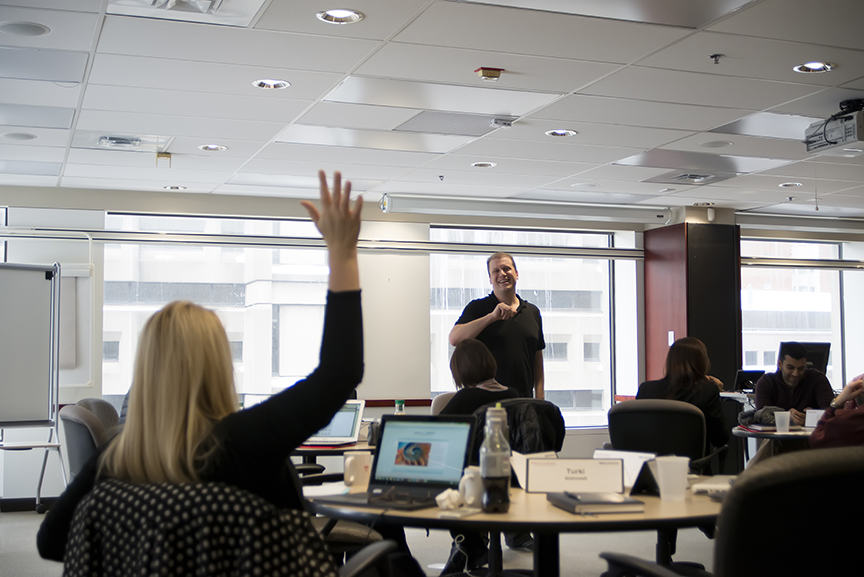Everyone seems to have a method or “technique” for telling you how you should battle your audition nerves. It typically involves trying very hard to convince you not to be nervous, or repeating to yourself that you are indeed worthy of success, or that what you’re feeling is perfectly normal and that you should just “use it.” While I agree with the concept of “using it,” it feels like a superficial solution to a much more complex problem. As we’re all different, there is never a one-size-fits-all approach to redirecting and alleviating your nerves.
It is my belief that nerves can be completely obliterated when you are lit up and under the influence of sharp, impactful, and fun emotional choices.
One of my clients is so nervous and terrified when she walks into an audition room that she can feel—and hear—her heart pounding out of her chest. After helping her find what I call her “hook” or “light up” for the scene, I asked how many heartbeats she noticed. The answer was none. That doesn’t mean that her heart wasn’t racing, it’s that she didn’t notice it because she was dialed in. If you’re focused on your nerves, you’re going to feel more nervous.
What do you think would happen to audition nerves if you fell in love before you entered the room? Imagine if you were getting out of your car, walked to the elevator, time stood still, and for a solid 10 seconds the universe blinked in unison with you as you stood and stared at the person who was undoubtedly your star-crossed lover. You would enter the audition room with a far more powerful emotion coursing through your veins, having communed and finally met your soul mate. This emotion, I assure you, would be way more compelling than any simple nerves you might be feeling. Your preparation needs to be like that. When the stakes are high, your preparation has to be tighter, hotter, and stronger so that it can lift you out of the nerves. It becomes your job to discover what lights you up and turns you on about the scene, thus, kicking your nerves off center stage.
I help my clients go into the room and book the role by guiding them to their hottest and most impactful choices; these choices will unequivocally defeat your audition nerves.
If you feel like your preparation is rock solid and that you have a strong hook to launch you into the scene, but when you get to the waiting room of a casting office or a theater and your heart starts racing, you start sweating or you begin to shake, know that’s OK. You can still do a phenomenal job and you can still book the role. Some actors think that any sign of nerves means that it’s all over—it’s not. If your body starts to freak out, that’s fine. Let your body have its freak out. Wherever you are—in the car, on the subway, in the waiting room, walking down the hall to the audition room—tell yourself, “Hey, I’m having a freak-out.” Don’t fight it and don’t act like it’s the end of the world. Freaking out over your freak-out is the worst thing you can do, as you give your nerves more power and more agency. If you can have a sense of humor about it, it can really help take the edge off.
Remember also that like a first date, an audition begins the moment casting/producers lay eyes on you, which can often be before you step foot in the room. You start assessing your blind date the moment you see him/her, not at the moment he or she starts talking. And just like on a date, you will give someone a break if they don’t look perfect, but if they radiate oodles of confidence, it can actually make them more beautiful! So radiate those oodles of confidence, particularly because there’s often a chance that the casting team might try to chat you up in order to get a sense of you. That is of course the time to let your winning personality shine (though not the time to try to seem like you are attempting to get them to like you).
Given those circumstances of audition nerves and the actor now faced with the “conversational audition” before any acting takes place, my advice to actors is to just be yourself, but under the influence of an emotional attitude of great power and confidence. Before walking into the audition room, one of my brave clients lights himself up with the attitude, “I’m the fucking solution to your problem.” Another effective trick to lift the nerves out of your body within seconds is to simply say to yourself, “I already did it, and now I get to go back in and do it again.”
As with anything, confidence comes with repeated success, colossal failure, and years of flying hours. Start to adopt the attitude that, “I’ve already made it,” and live every day as if you’re already having the career of your dreams.
This article was originally posted on Backstage






